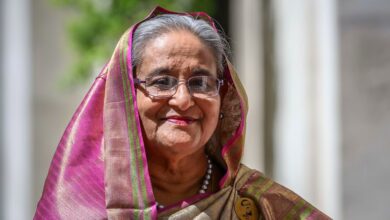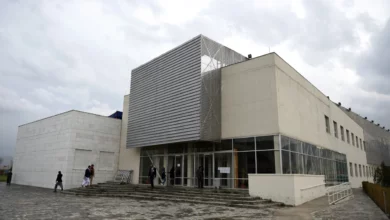Student members of the April 6 Youth Movement on Monday deeply criticized the selection of a Muslim Brotherhood-linked student as a member of the constituent assembly that will draft Egypt’s new constitution.
The movement said in a statement that Mansoura University students were surprised to hear that Ahmed Fouad al-Marakby, a dentistry school student and a Brotherhood member, had been elected to the assembly to represent Egyptian students.
Lawmakers decided to comprise 50 percent of the constituent assembly’s 100 members, angering secular political parties — five of which have announced they will boycott the constituent assembly in protest.
April 6 Youth Movement’s statement said Marakby does not represent Egyptian students.
It said the Brotherhood used the fact that students are overwhelmed with the student union elections and formed a body called “the Mansoura University Students’ Parliament” made up of its loyalists at the university.
The pro-Brotherhood members then chose Marakby to represent students in the constituent assembly, the statement said.
The movement said such a selection process is not different from the policies adopted by the fallen regime of toppled President Hosni Mubarak.
After his selection, rumors surfaced that Marakby is the nephew of Mohamed Morsy, the chairman of the Brotherhood’s Freedom and Justice Party. The party later denied the allegations.
The April 6 students voiced their objection to the incident and demanded the nomination of the secretary and assistant secretary of the Egyptian Student Union as students’ representatives in the constitution-writing process.
Since the first anniversary of the revolution, students, along with workers, have been one of the major forces that continued to protest, demanding reform of the educational system.
Independent and secular students have recently opposed a bylaw regulating students’ activism inside campuses, saying it borrowed the same hated tactic applied by the Mubarak regime designed to curb activism inside campuses.
Pro-Brotherhood students, once targeted by such bylaws under Mubarak, supported the new legislation.




